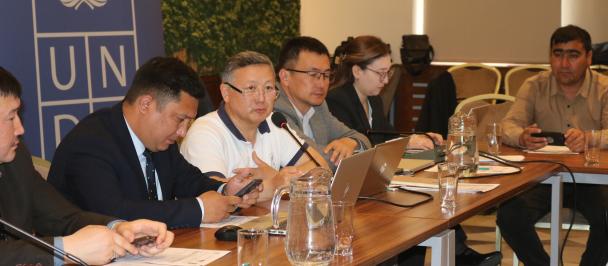This year, UNDP in the Kyrgyz Republic launched the project "Social and economic recovery from the negative consequences of Covid-19 in Osh, Jalal-Abad, Batken regions of the Kyrgyz Republic" with the financial support from the Russian Federation. The project aims to foster social cohesion, including through promoting entrepreneurship skills and supporting startups to increase employment among young men and women in rural areas, with a particular focus on returning migrants. Thus, to analyze the ecosystem of women and youth entrepreneurship and identify related issues and opportunities, there was a rapid assessment conducted in Osh, Jalal-Abad, Batken provinces.
“Rapid assessment was carried out through in-depth interviews and focus group discussions with the participation of more than 100 respondents. The interviews were attended not only by returning migrants who are looking for a job, but also by young people, women, businesses, and organizations providing training services. This helped us to reveal a wider picture of the obstacles faced by entrepreneurs of the target group in the pilot communities of the project,” said Daniel Abdyldaev, the representative of the business accelerator “John Galt”, who led the assessment.
“Express analysis reflects the main problems that hinder entrepreneurship among youth and women in the rural areas of southern Kyrgyzstan, the recommendations of which will guide in forming and implementing further project activities. Therefore, the express assessment is an important stage in the implementation of the entire architecture of the project”- explained Mukash Kaldarov, the Senior Adviser for Peace and Development UNDP.
This assessment was conducted by the business accelerator company “John Galt” in accordance with the analytical framework of Eisenberg D. consisting of six main areas: politics, finance, markets, human capital, support, and culture. The key findings highlighted various barriers in entrepreneurship mainly related to environmental and unstable conditions, gender inequality and lack of digital skills.

 Locations
Locations


